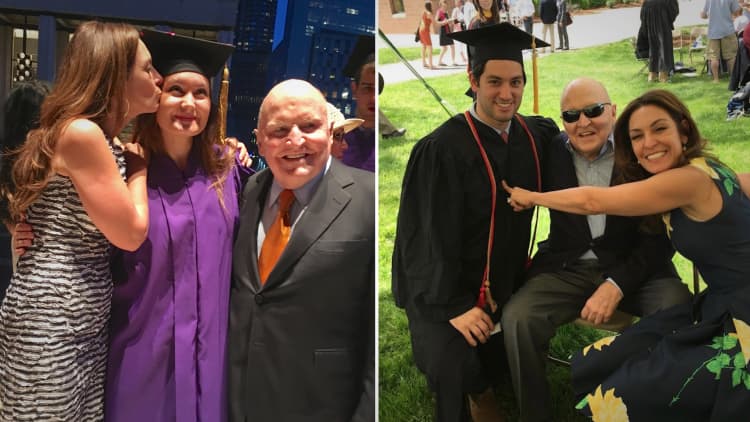Over half of millennials believe their parents will leave them an inheritance, according to a recent Charles Schwab survey. But they may be disappointed.
The expectation makes sense. Previous generations have passed on significant amounts of money, and when the oldest Baby Boomers started to hit retirement age, experts touted the "great wealth transfer" that would occur, since this generation has an estimated $30 trillion.
Yet only about one in five people actually received any kind of inheritance between 1989 and 2007, Schwab reports.
A survey last year reached a similar conclusion. Nearly 70 percent of millennials in the Natixis U.S. Investor Survey reported that they expect an inheritance, yet only 40 percent of their parents planned to leave one.
A major part of this shift away from inheritances is increasing longevity. People are living longer, they're healthier, so they need to use more of their savings to support themselves, Carrie Schwab-Pomerantz, a financial adviser, board chair and president of the Charles Schwab Foundation, tells CNBC Make It.
"Never consider an inheritance as part of your financial plan. That's dangerous," Schwab-Pomerantz says.
Never consider an inheritance as part of your financial plan. That's dangerous.Carrie Schwab-Pomerantzpresident of the Charles Schwab Foundation
Health-care costs are also going up: They're expected to rise over 3 percent this year alone, according to the U.S. Centers for Medicare and Medicaid Services. And while most seniors enroll in Medicare when they turn 65, the program doesn't cover many long-term chronic medical needs. Instead, economists estimate people will spend an average of $122,000 between the time they turn 70 and when they die.
Even if they don't have severe medical issues, they may need to move to an assisted living facility, the average cost of which was about $3,750 a month last year, according to the Genworth 2017 Cost of Care Survey. If your parents reside in an assisted living facility for 10 years, that would cost more than the average new home.
"It's really important we all rely on ourselves and be really independent and build our own savings and nest egg so we can call our own shots," Schwab-Pomerantz says.
Don't miss: Here's why 1 in 3 college-age Americans consider payday loans with interest rates of 400%
Like this story? Subscribe to CNBC Make It on YouTube!



